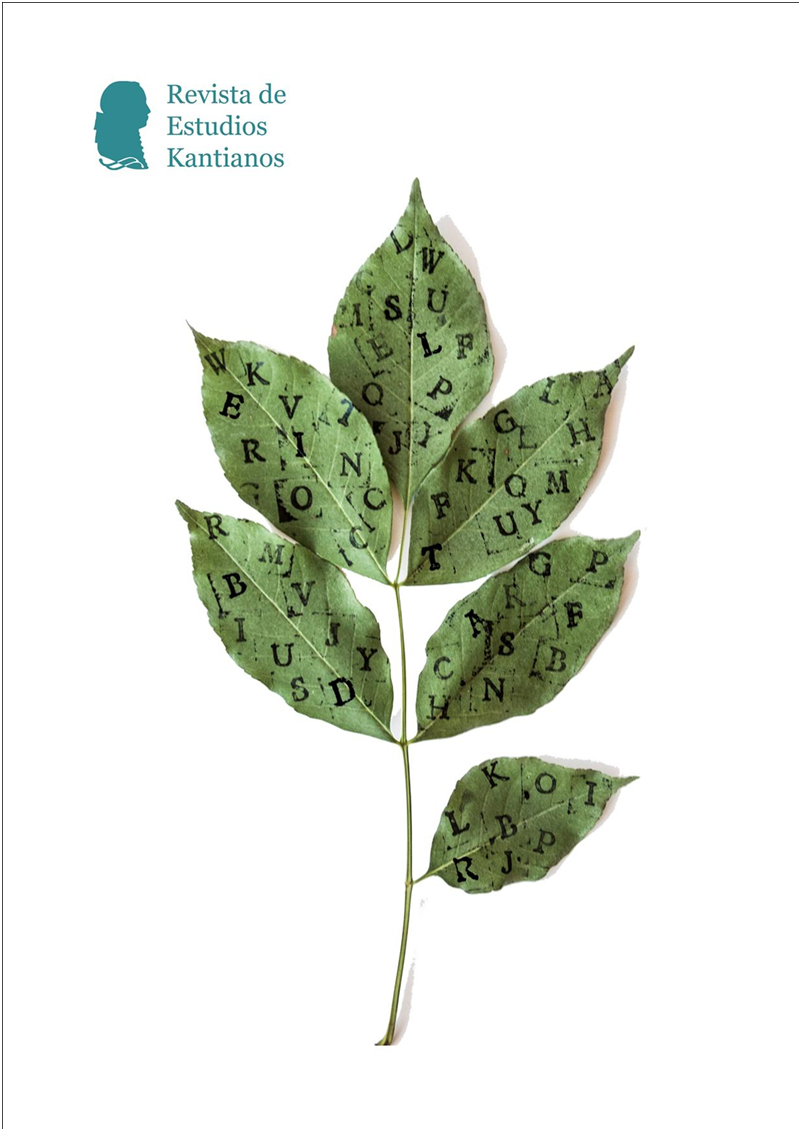Plotinus’ concept of ‘We’ and Its Relation to the Kantian Tradition
DOI:
https://doi.org/10.7203/REK.9.1.27679Keywords:
Plotinus, History of Philosophy, Self-consciousness, Neoplatonism, Kantian Tradition Abstract
Abstract
Hailed as an innovative concept in antiquity, Plotinus’ concept of the ‘we’ occupies a nuanced and somewhat elusive systematic position. On the one hand, it locates itself in the realm of the soul rather than the intellect; at the same time, however, it manifests a self-conscious dimension typically ascribed to the intellect rather than the soul. This paper attempts to resolve this ambiguity by interpreting the ‘we’ as a potential of self-consciousness, which explains why the ‘we’ can become similar to, but not identical with, the actual self-consciousness of the intellect. The proposed definition not only brings clarity to the seemingly paradoxical formulations surrounding the ‘we’ in Plotinus’ philosophy but also sheds light on the allegories that Plotinus employs. Moreover, my analysis highlights the similarity between the Plotinian ‘we’ and the characterizations of the self within the Kantian tradition. Drawing on Cassirer’s dichotomy between concepts of substance and concepts of function, and Kant’s assertion that the ‘I think’ represents a potentiality rather than an actuality of self-consciousness, this study attempts to provide a conceptual bridge between the Plotinian and Kantian frameworks.
 Downloads
Downloads
 References
References
Armstrong, A. H. ed. (1966-1988), Plotinus: Enneads. Cambridge: Harvard University Press.
Aubry, G. (2020). An Alternative to Cartesianism? Plotinus’s Self and its Posterity, Pages 210-230 of: Cudworthand, Ralph (ed.), Self-Knowledge in Ancient Philosophy, Oxford : Oxford University Press.
Beierwaltes, W. (1991). Selbsterkenntnis und Erfahrung der Einheit: Plotins Enneade V 3: Text, Übersetzung, Interpretation, Erläuterungen. Frankfurt am Main: Vittorio Klostermann.
Blumenthal, H. J. (1971). Plotinus’ Psychology: His Doctrines of the Embodied Soul, The Hague: M. Nijhoff.
Bréhier, E. (1928). Histoire de la philosophie. Paris: Presses Universitaires de France.
Cassirer, E. (1923). Substanzbegriff und Funktionsbegriff: Untersuchungen über die Grundfragen der Erkentniskritik. Berlin: B. Cassirer.
Dodds, E. R. (1960). Comment on H. R. Schwyzer: ‘Bewusst’ und ‘unbewusst’ bei Plotin. Pages 385–386 of: Dodds, Eric R. (ed.), Les Sources de Plotin. Geneve: Fondation Hardt.
Hutchinson, D. M. (2018). Plotinus on Consciousness. Cambridge University Press.
Kalligas, P. 2014. The Enneads of Plotinus, Volume 1: A Commentary. Vol. 1. Princeton: Princeton University Press.
Kant, I. (1956). Kritik der reinen Vernunft B, Hamburg: Meiner
Mortley, R. (2013). Plotinus, Self and the World. Cambridge: Cambridge University Press.
O’Daly, G. (1973). Plotinus' Philosophy of the Self, New York: Barnes & Noble.
Oosthout, H. (1991). Modes of Knowledge and the Transcendental: An Introduction to Plotinus Ennead 5.3 [49]. Amsterdam: John Benjamins Publishing.
Rappe, S. (1996). Self-knowledge and Subjectivity in the Enneads. Pages 250-274 of: Gerson, Lloyd (ed.), The Cambridge Companion to Plotinus, Cambridge: Cambridge University Press, 1996.
Remes, P. (2007). Plotinus on Self: The Philosophy of the ‘We’. Cambridge: Cambridge University Press
Schwyzer, H. R. (1960). “Bewusst” und “Unbewusst” bei Plotin, Pages 343-378 of: Dodds, Eric R. (ed.), Les Sources de Plotin. Geneve: Fondation Hardt.
Sorabji R., (2006). Self: Ancient and Modern Insights about Individuality, Life, and Death, Oxford: Clarendon Press.
Stenzel, J. (1929). Metaphysik des Altertums München: R. Oldenbourg.
Tornau, C. (2009). What’s a Person? Unity, Individuality And Self-Consciousness in the Plotinian Metaphysics of the Soul. Les Études Philosophiques, 332–360.
Warren, E. W. (1964). “Consciousness in Plotinus.” Phronesis 9.2, 83-97
Downloads
Published
How to Cite
-
Abstract252
-
PDF57
Issue
Section
License
![]()
The authors who publish in this journal agree with the following terms:
- The authors retain their copyright and guarantee to the journal the right to be the first to publish the work and to license it under a Creative Commons Attribution License that allows others to share the work with an acknowledgement of its authorship and the initial publication in this journal.
- Authors may separately establish additional agreements for non-exclusive distribution of the version of the work published in the journal (for example, placing it in an institutional repository or publishing it in a book), with acknowledgement of its initial publication in this journal.
- Authors are allowed and encouraged to disseminate their work electronically (e.g., in institutional repositories or on their own website) before and during the submission process, as this can lead to productive exchanges as well as earlier and greater citation of published work (see The Effect of Open Access).








